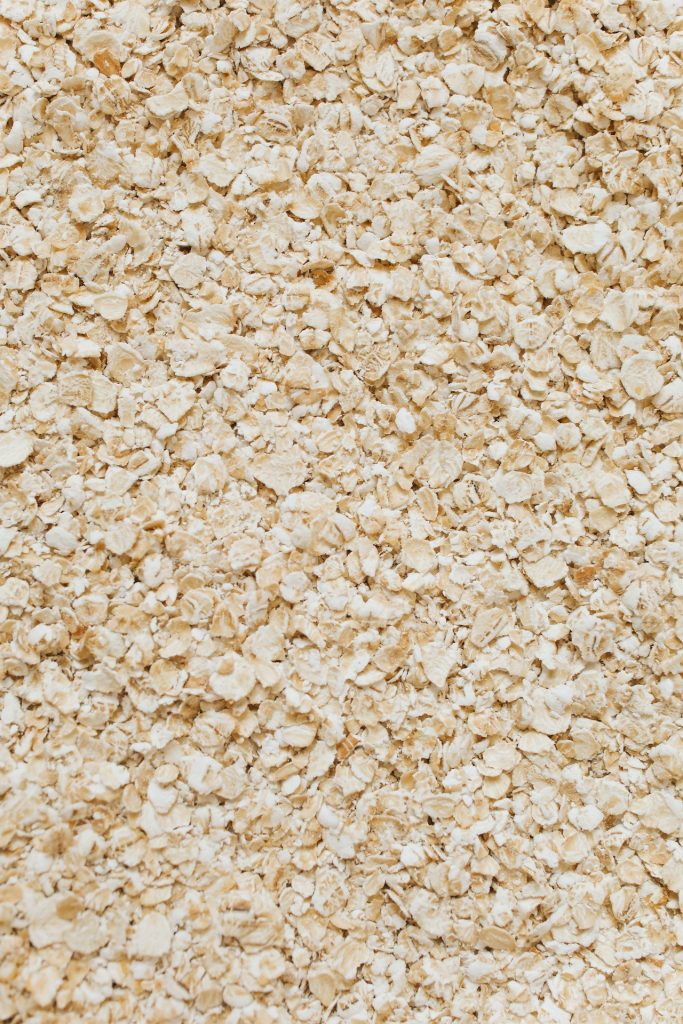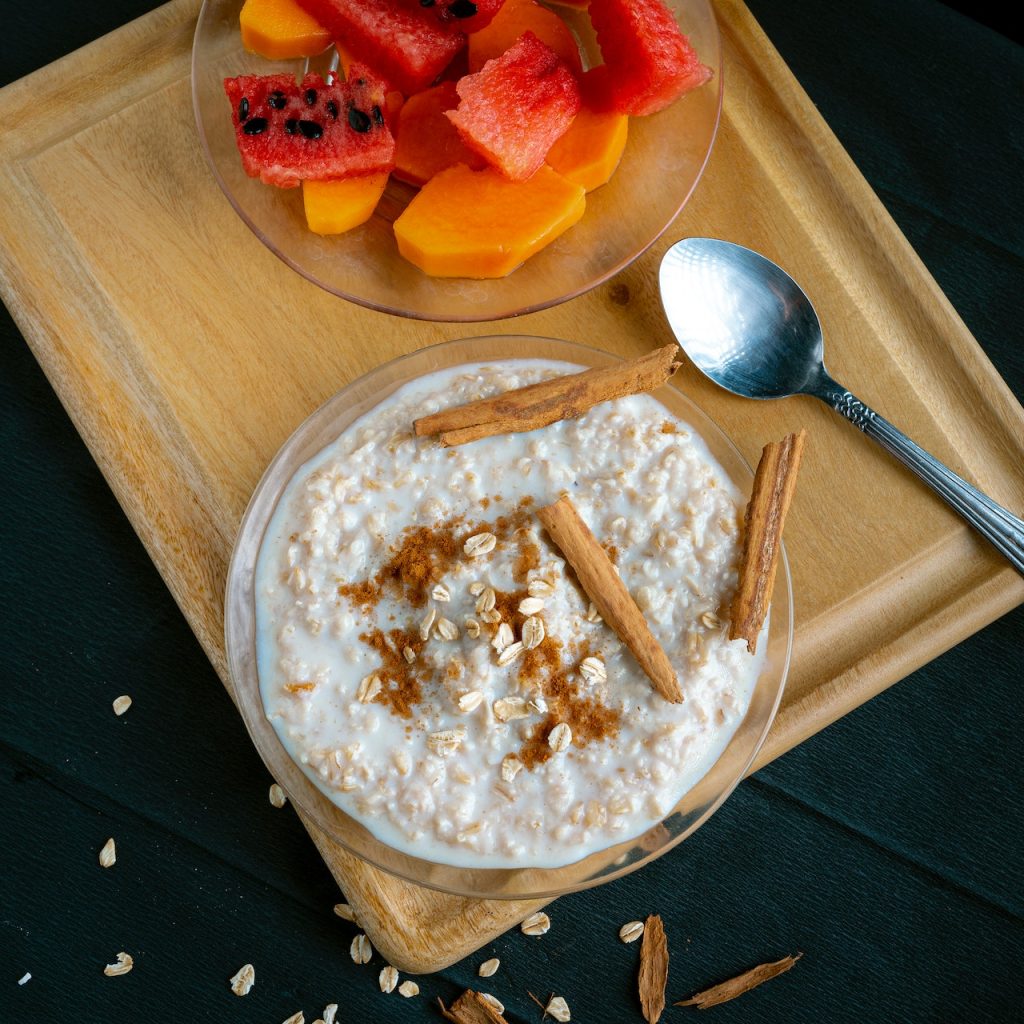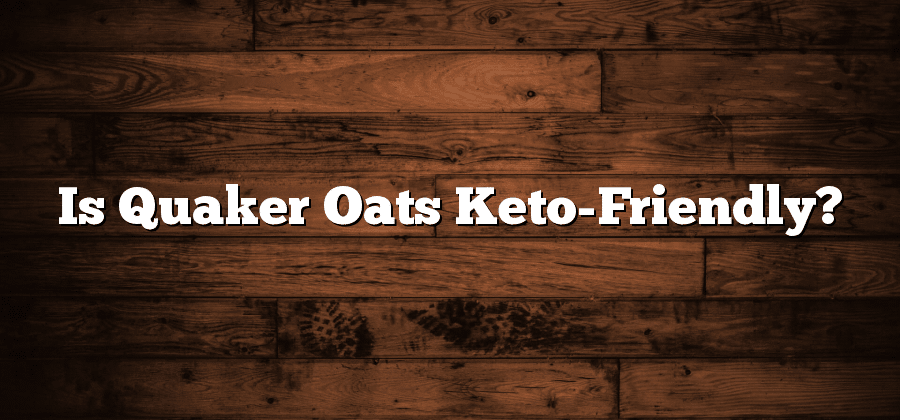The ketogenic diet, also known as the Keto diet, is a low-carb, high-fat diet that has gained popularity in recent years for its potential health benefits. While following this diet, it is essential to understand which foods are compatible with it and which ones to avoid. In this post, we will be examining whether Quaker Oats, a staple breakfast food, is keto-friendly. We will delve into the nutritional value of Quaker Oats and explore how it affects the Keto diet. Additionally, we will provide alternative options for those following a Keto diet to incorporate oats into their meals.
Understanding Quaker Oats

Quaker Oats is a well-known brand of oats that have been around for over 140 years. The company offers a range of oatmeal products, including instant oats, old-fashioned oats, and steel-cut oats, making it a staple breakfast food for many people. Oats are known for their high fiber content, which makes them an excellent source of energy and satiety.
Nutritional Value of Quaker Oats
Quaker Oats are a nutritious food, containing carbohydrates, fiber, protein, and a small amount of fat. One cup of cooked Quaker Oats contains approximately 150 calories, 27 grams of carbohydrates, 6 grams of protein, and 3 grams of fat. Oats are also a good source of essential vitamins and minerals, including thiamin, iron, and magnesium.
Quaker Oats and Keto Compatibility

Carbohydrates content in Quaker Oats
One cup of cooked Quaker Oats contains approximately 27 grams of carbohydrates, which is a significant amount when compared to the daily carbohydrate limit set by the Keto diet. The Keto diet requires reducing carbohydrate intake to a minimum, usually to less than 50 grams per day, to achieve and maintain ketosis. This high carbohydrate content in Quaker Oats may make it challenging for those following the Keto diet to include it in their meal plan.
Protein and Fat Content in Quaker Oats
Quaker Oats contain 6 grams of protein and 3 grams of fat per cup of cooked oats. While the protein and fat content in Quaker Oats is not necessarily high, they are still within the acceptable range for the Keto diet.
Fiber Content in Quaker Oats
Quaker Oats contain 4 grams of fiber per cup of cooked oats, which is an excellent source of soluble fiber. Soluble fiber helps to slow down digestion, leading to a feeling of fullness and preventing spikes in blood sugar levels. However, fiber is not directly metabolized by the body and does not contribute to the net carb count in the Keto diet.
Impact of Quaker Oats on Keto Diet
While Quaker Oats contain fiber and protein, their high carbohydrate content makes it challenging to include them in the Keto diet. Including Quaker Oats in a meal plan may result in exceeding the daily carbohydrate limit set by the Keto diet, potentially leading to an interruption of ketosis. For those following a strict Keto diet, it is recommended to limit or avoid Quaker Oats and opt for an alternative, low-carb options.
Alternative Keto-friendly Oat Options
Coconut Flour
Coconut flour is a low-carb, gluten-free flour made from coconut meat that has been dried and ground. It contains approximately 5 grams of carbohydrates per 2 tablespoons, making it an excellent alternative for those following the Keto diet. Coconut flour can be used to make baked goods, including cakes, muffins, and pancakes, and can also be added to smoothies or used as a breading for meat and vegetables.
Almond Flour
Almond flour is another low-carb, gluten-free alternative to traditional wheat flour. Made from ground almonds, almond flour contains approximately 3 grams of carbohydrates per 2 tablespoons. Almond flour can be used in a variety of baked goods, including cakes, cookies, and bread, and can also be used as a coating for meat and vegetables.
Psyllium Husk
Psyllium husk is a form of soluble fiber derived from the seeds of the Plantago ovata plant. It contains approximately 4 grams of carbohydrates per tablespoon and is an excellent alternative for those following the Keto diet. Psyllium husk can be added to smoothies or used as a thickener in soups and sauces. It can also be used as a binding agent in baked goods, including bread and cookies.
By incorporating alternative Keto-friendly oat options, such as coconut flour, almond flour, or psyllium husk, into your meal plan, you can still enjoy the benefits of oats while staying within the restrictions of the Keto diet.
Net Carb Calculator for Quaker Oats
Net Carb Calculator for Quaker Oats:
To calculate the net carbs in Quaker Oats, follow these steps:
- Determine the total carbohydrates per serving of Quaker Oats. One cup of cooked Quaker Oats contains approximately 27 grams of carbohydrates.
- Subtract the fiber content from the total carbohydrates. Quaker Oats contain 4 grams of fiber per cup of cooked oats.
- The result is the net carbohydrates per serving of Quaker Oats.
Example:
27 grams of carbohydrates – 4 grams of fiber = 23 grams of net carbohydrates per cup of cooked Quaker Oats.
It’s important to keep in mind that this is just an estimate and the actual net carbohydrates may vary slightly based on the preparation method and specific product. To be sure of the net carbohydrates in your Quaker Oats, it’s best to refer to the nutritional information on the product label.
Conclusion
In conclusion, Quaker Oats are not necessarily keto-friendly due to their high carbohydrate content. However, alternative options, such as coconut flour, almond flour, and psyllium husk, can provide the benefits of oats while staying within the restrictions of the Keto diet. It is essential to understand the nutritional content of the foods you consume and how they fit into your diet to ensure you are getting the necessary nutrients while following a healthy eating plan. If you are following the Keto diet, it is recommended to limit or avoid Quaker Oats and opt for an alternative, low-carb options. Remember to consult a healthcare professional before starting any new diet or making significant changes to your eating habits.
Frequently Asked Questions
Are Quaker Oats keto-friendly?
No, Quaker Oats are not keto-friendly due to their high carbohydrate content. One cup of cooked Quaker Oats contains approximately 27 grams of carbohydrates, which is a significant amount when compared to the daily carbohydrate limit set by the Keto diet.
Can I still have oats on the Keto diet?
Yes, you can still have oats on the Keto diet, but it is essential to choose alternative, low-carb options such as coconut flour, almond flour, or psyllium husk. These alternatives can provide the benefits of oats while staying within the restrictions of the Keto diet.
What is the net carb content of Quaker Oats?
The net carb content of Quaker Oats is calculated by subtracting the fiber content from the total carbohydrates. One cup of cooked Quaker Oats contains approximately 27 grams of carbohydrates and 4 grams of fiber, leading to a net carb content of 23 grams per cup.
How many grams of carbohydrates are allowed on the Keto diet?
The number of carbohydrates allowed on the Keto diet varies based on individual needs and goals, but it is usually recommended to limit carbohydrate intake to less than 50 grams per day.
Is it safe to follow the Keto diet?
The Keto diet can be safe for some people when followed under the guidance of a healthcare professional. However, it is essential to understand the potential risks and side effects, such as nutrient deficiencies and electrolyte imbalances, before starting the Keto diet. Consult a healthcare professional before making significant changes to your eating habits.








